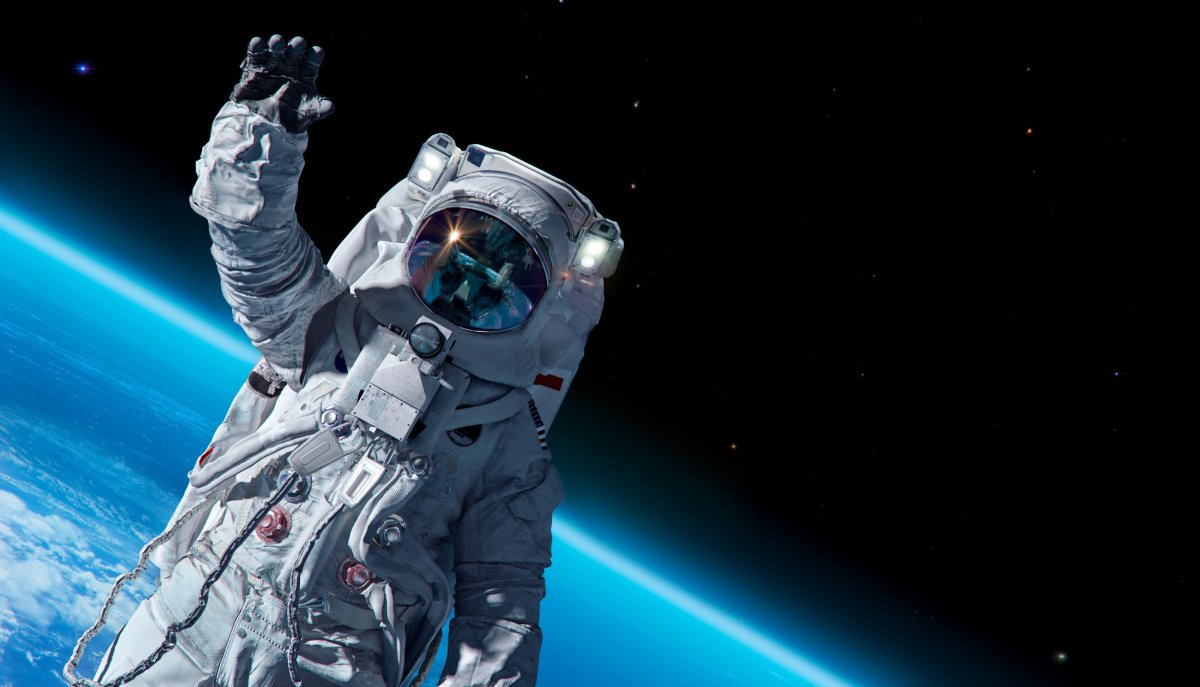Space travel could increase the risk of erectile dysfunction in male astronauts, a new study has found.
The study, published in The FASEB Journal, notes that this is due to astronauts being exposed to high levels of galactic cosmic rays—energetic particles that bombard earth—as well as weightlessness, while they are in space.
The risk of erectile dysfunction is not only present when astronauts are in space, but could continue for a long time after they are back on Earth, the study found.
Researchers undertook simulations in male rats to reach these findings. They found that both these factors associated with spaceflight were associated with erectile dysfunction. They found that spaceflight can effect vascular tissues relevant to the condition, even after there has been a prolonged period of recovery, the study reported.
Erectile dysfunction occurs when a person is unable to maintain an erection long enough for sex. It can be caused for a variety of reasons down on Earth, such as stress, alcohol consumption, or tiredness.
"That galactic cosmic radiation (GCR) impaired erectile function was not terribly surprising," one of the study's authors, Justin D. La Favor, a professor at Florida State University, told Newsweek.
"Prior research has demonstrated that GCR can cause damage to the endothelium and the nervous system, both of which are critical for proper erectile function. Generally speaking, the protective systems in the erectile tissues are less robust than the central cardiovascular system, so we hypothesized that there would be an adverse effect on the erectile tissues. The surprising element of the study is that we observed these effects after such a long recovery period."
The research concluded that changes in vascular tissues can occur from even low doses of galactic cosmic radiation. Weightlessness, or the absence of gravity, also contributed towards this although to a lesser extent, the study reported. The weightlessness mainly contributed to the change through oxidative stress—which is defined as an imbalance of radicals and antioxidants in the body.

With more manned missions to space planned for coming years, there needs to be more of a focus on astronauts' sexual health when they return to Earth, La Favor said in a press release on the findings.
"Current space vehicles provide negligible protection against GCR, so there are not effective ways to protect astronauts from GCR exposure on trips to deep-space," La Favor told Newsweek. "It is possible that the effects of GCR exposure could be mitigated therapeutically, but more research will be needed to establish efficacy, even in the rodent models. Our study only investigated the effects after long-term recovery. I would speculate that the effects of the galactic cosmic radiation would be more pronounced shortly after exposure, although that will need to be a topic of future investigation."
The research said treatment of different antioxidants would help counter the effects of galactic cosmic radiation. The good news is that erectile dysfunction is very treatable with the right help from medical professionals.
This is not the first time this issue has come to light. Scientists already knew that space's hostile environment can have negative effects on the body and its immune system.
Previously, scientists have explained that blood tends to flow in different directions when the body is in space, a CBC article reports. In space, the blood typically floats towards the head and chest. To maintain an erection, the body must have an increased amount of blood flow into the erectile tissue. So this altered blood flow can cause problems in maintaining it.
The possibility of humans having sex in space has even been considered since it became clear that space tourism may become viable at some point in the future—however this area of science needs more research. So far, it has been established that while it would not be impossible, it would be incredibly difficult.
Update 11/22/2023, 6:12 a.m. ET: This article has been updated to include quotes from an author of the study, Justin D. La Favor.
Uncommon Knowledge
Newsweek is committed to challenging conventional wisdom and finding connections in the search for common ground.
Newsweek is committed to challenging conventional wisdom and finding connections in the search for common ground.
About the writer
Robyn White is a Newsweek Nature Reporter based in London, UK. Her focus is reporting on wildlife, science and the ... Read more
To read how Newsweek uses AI as a newsroom tool, Click here.





